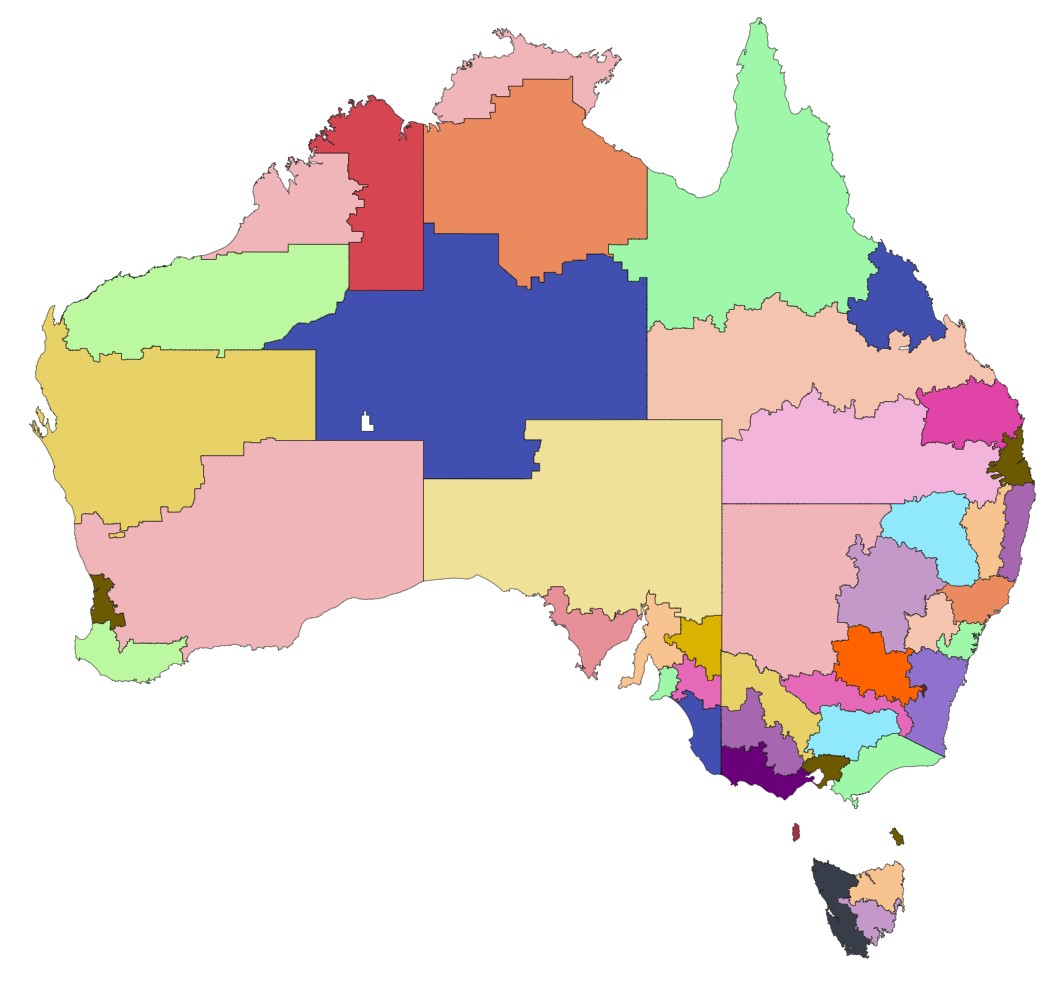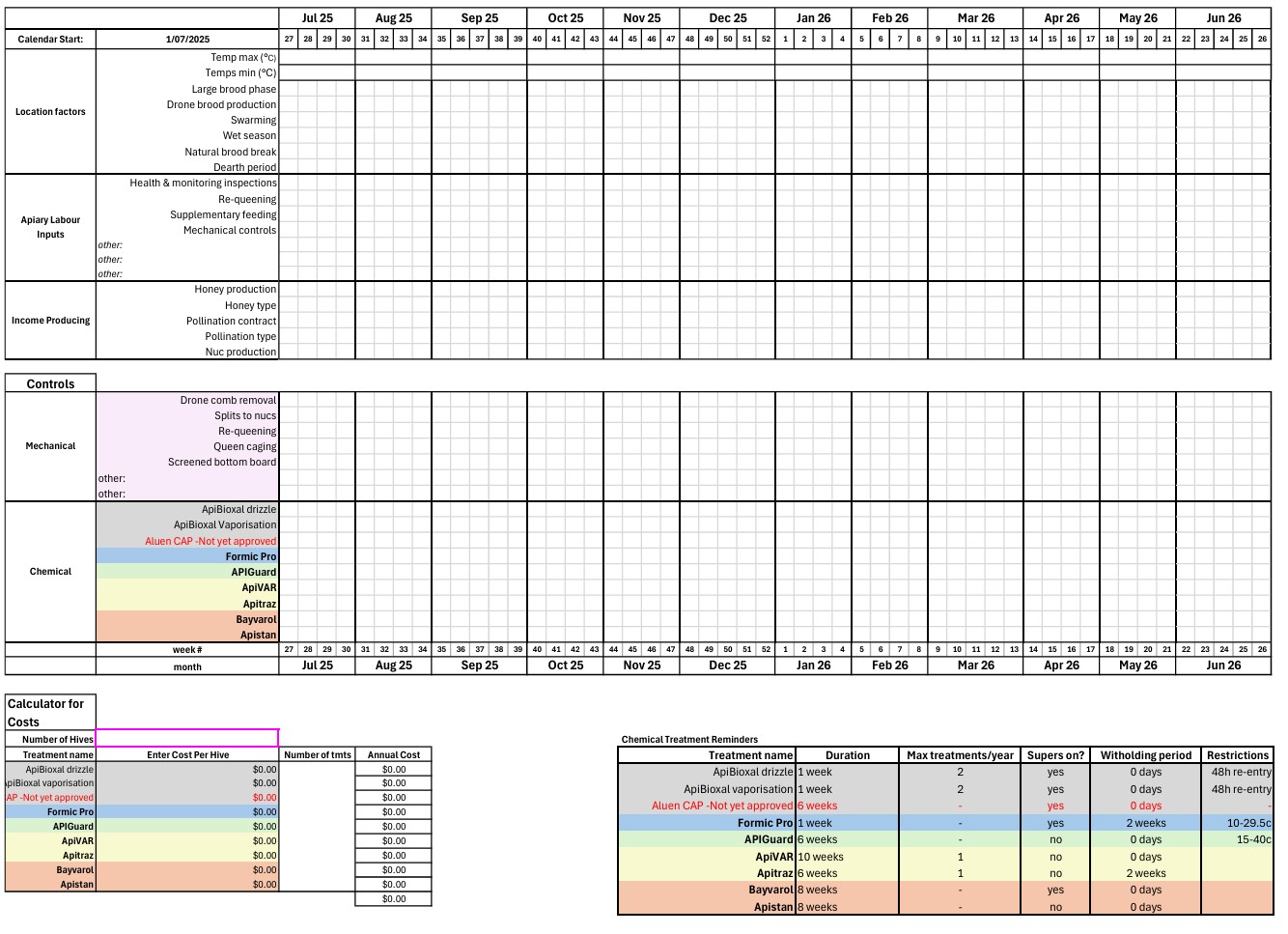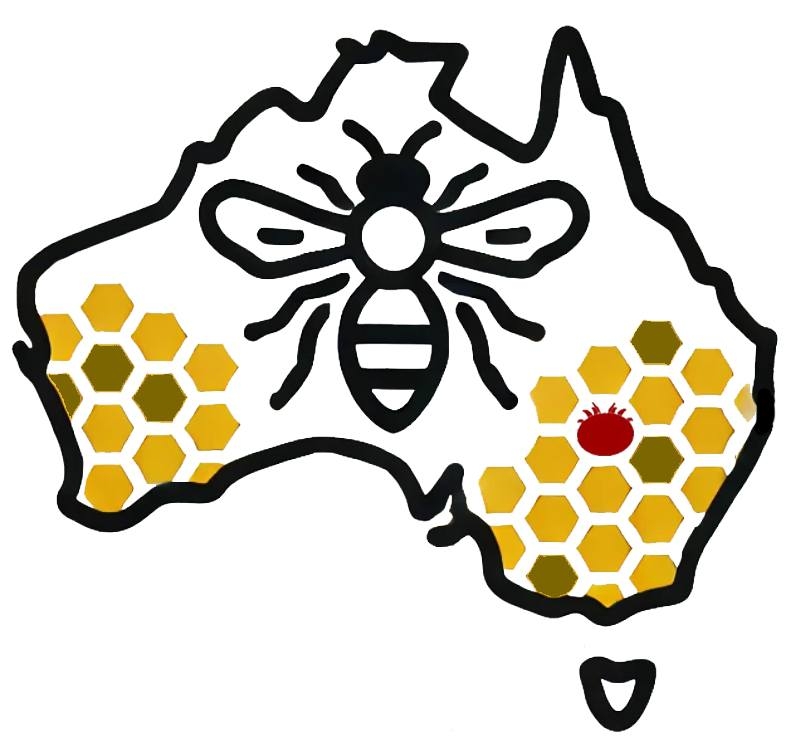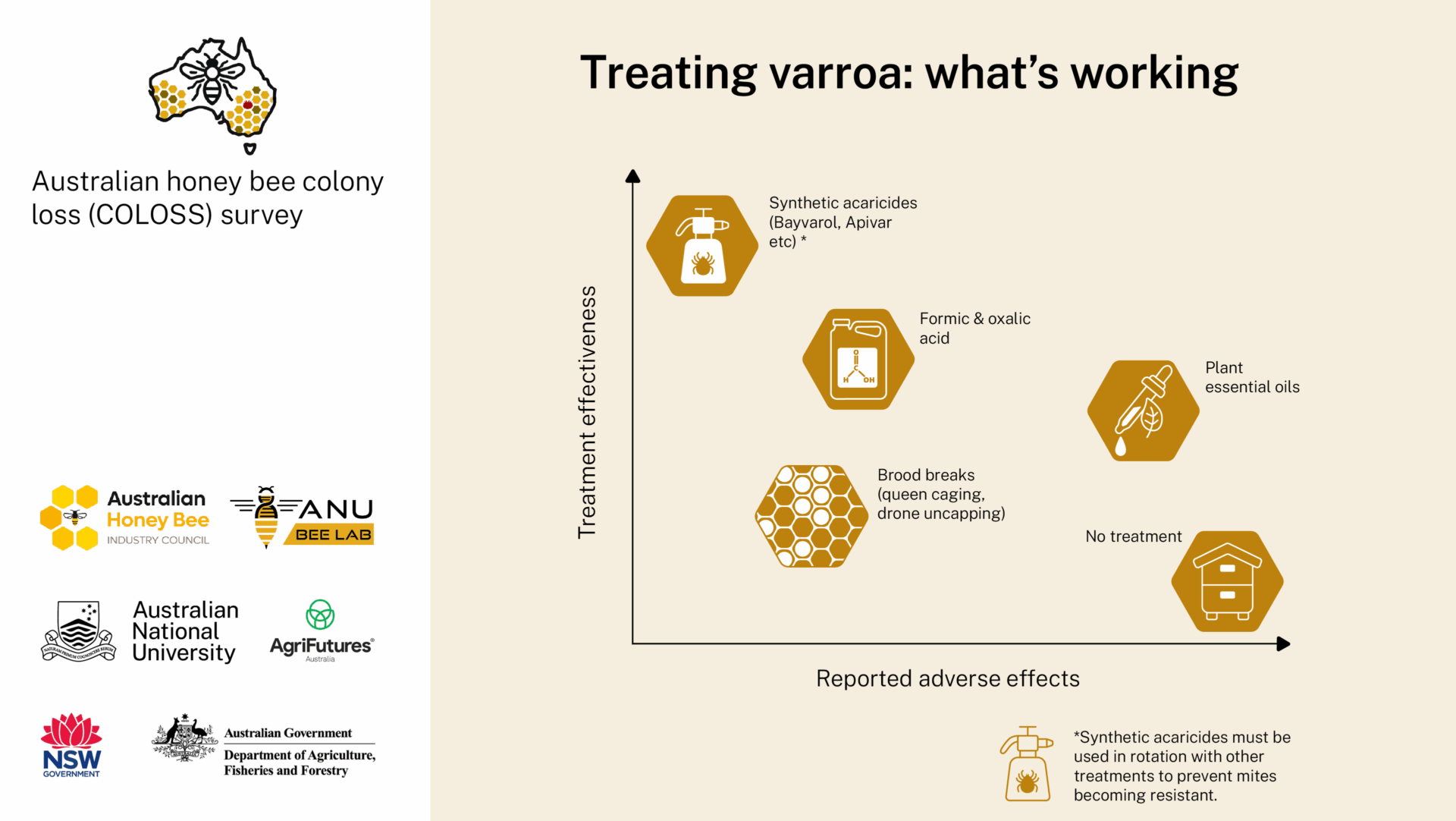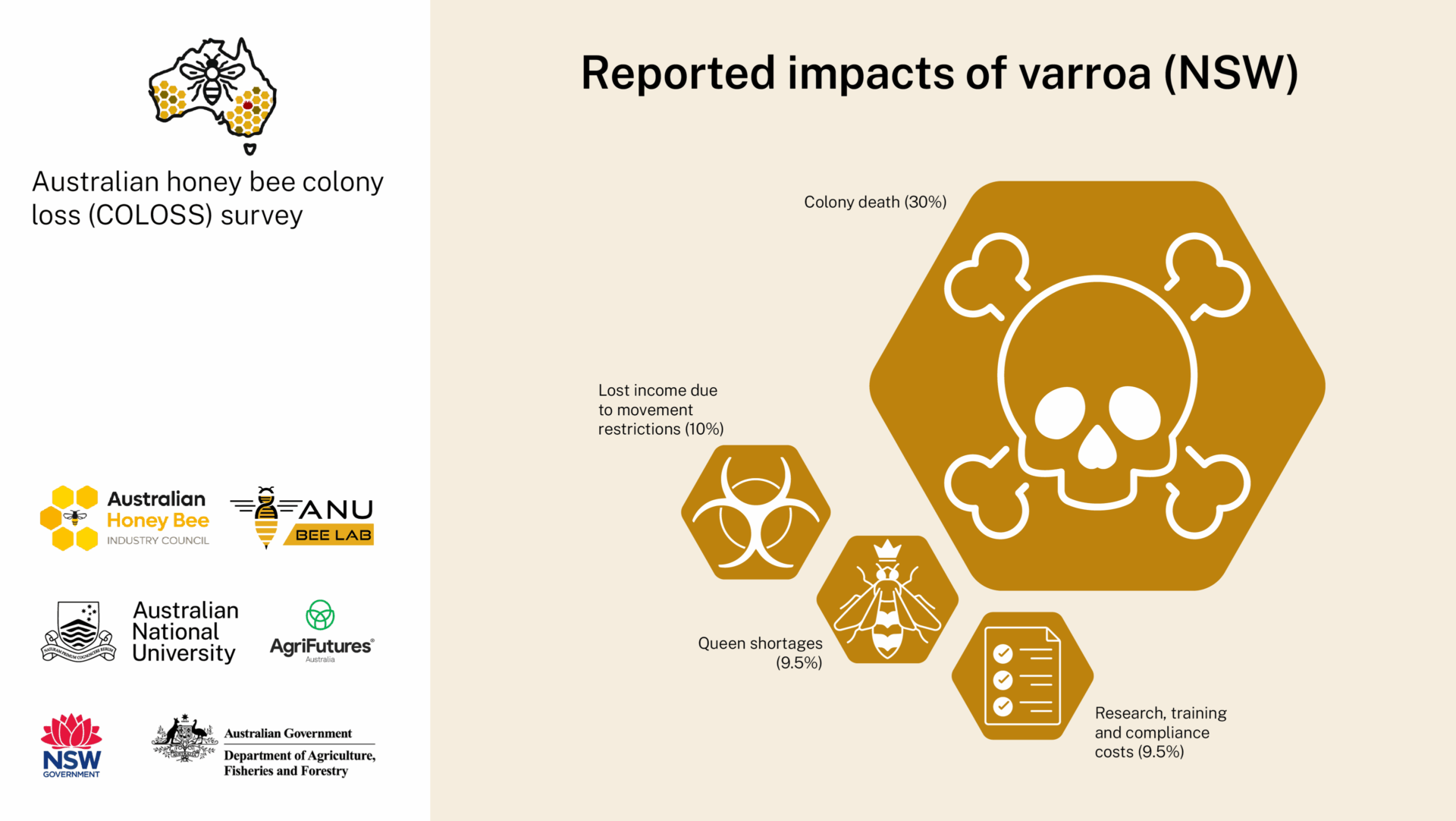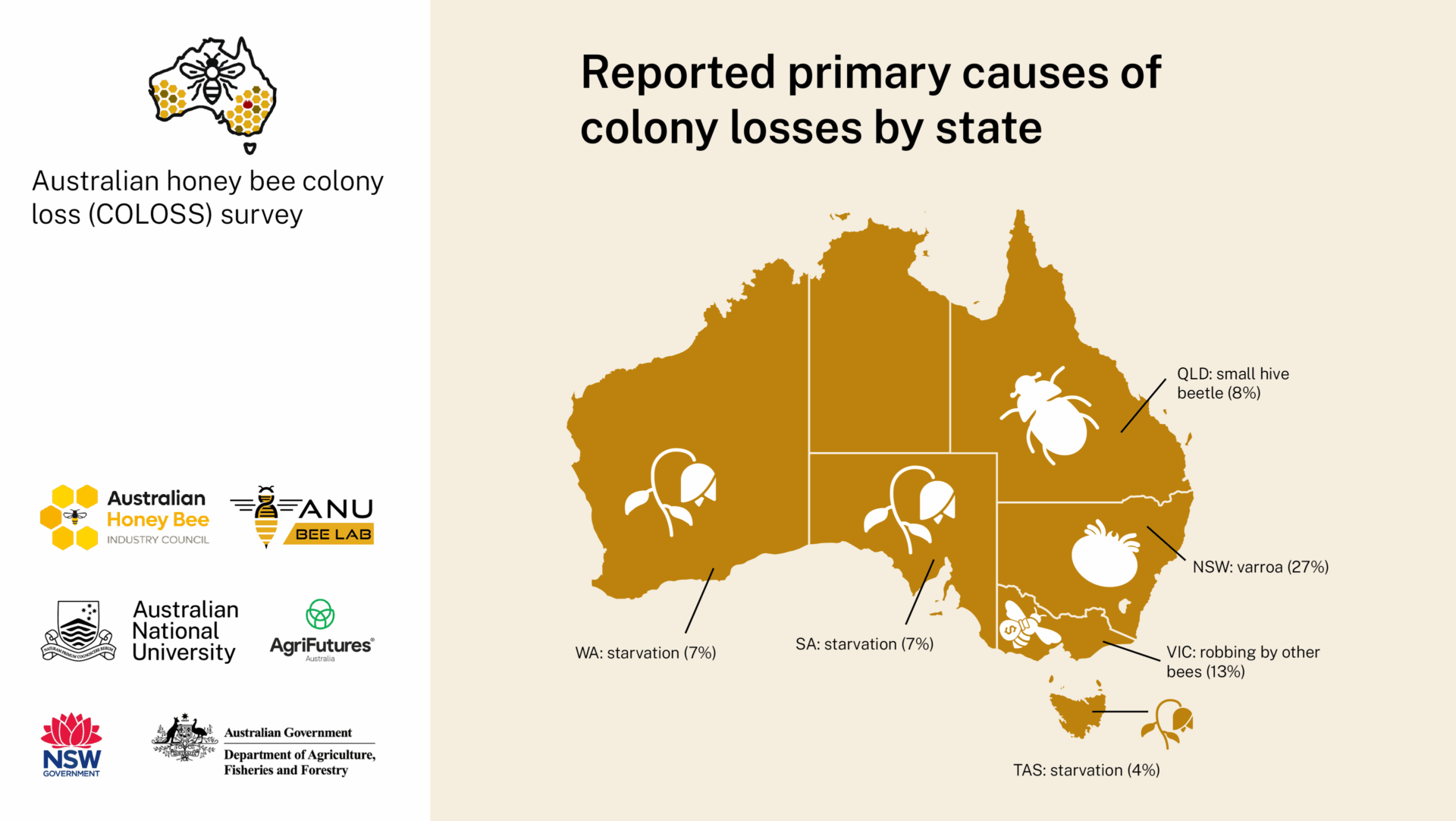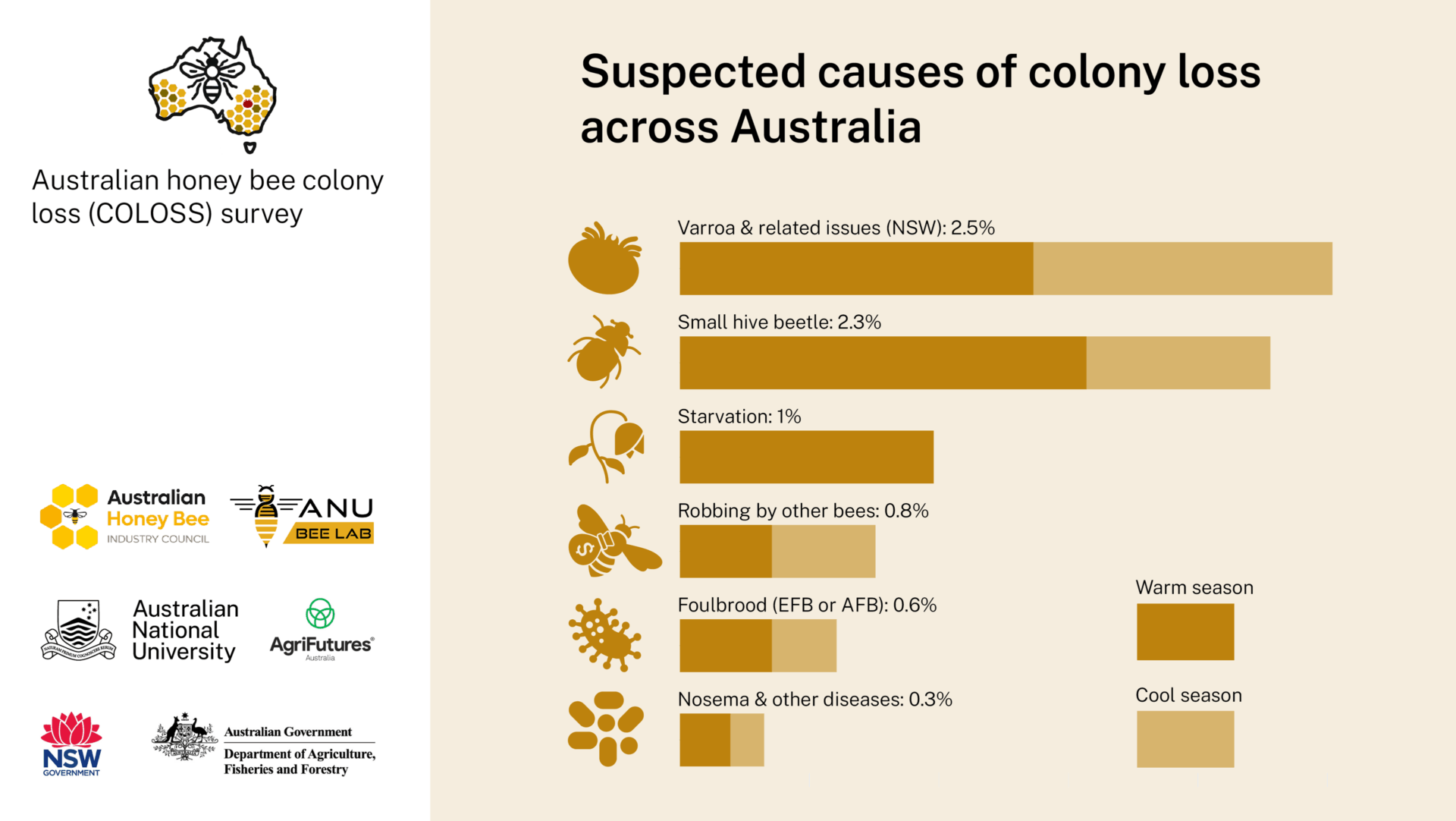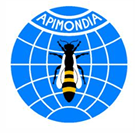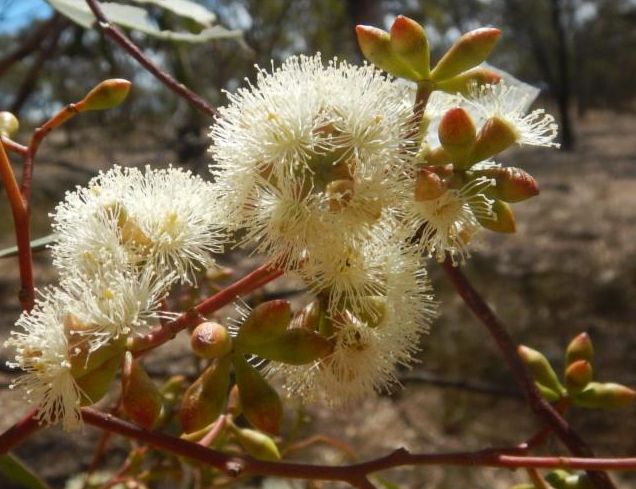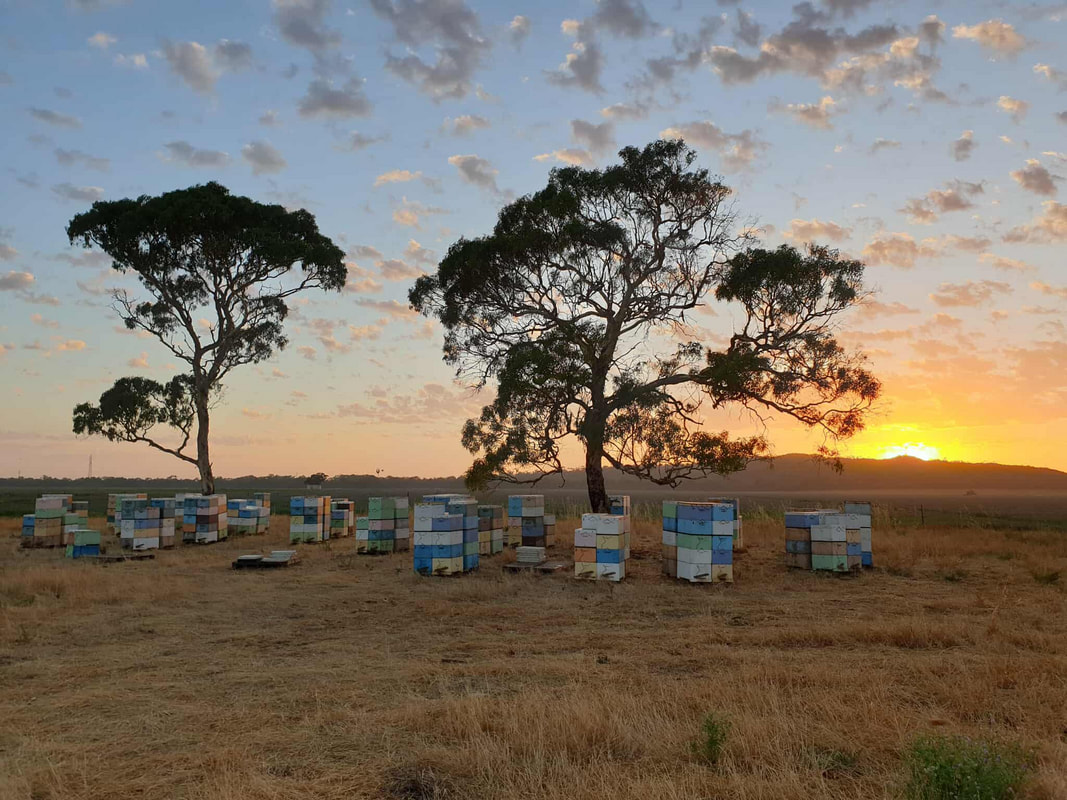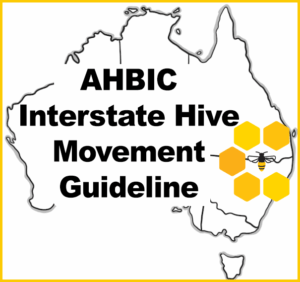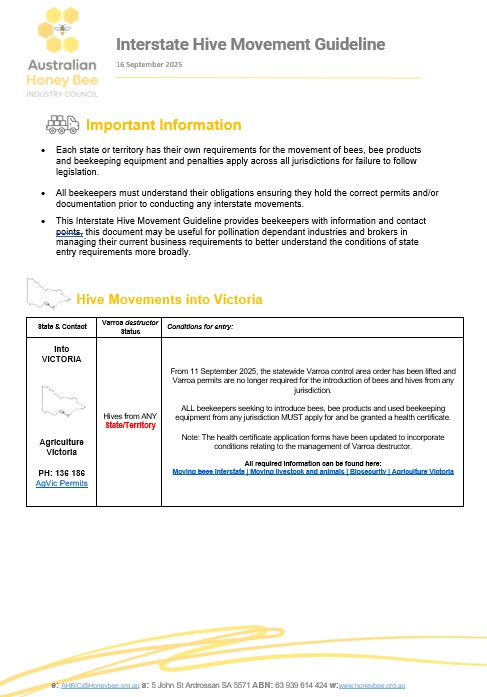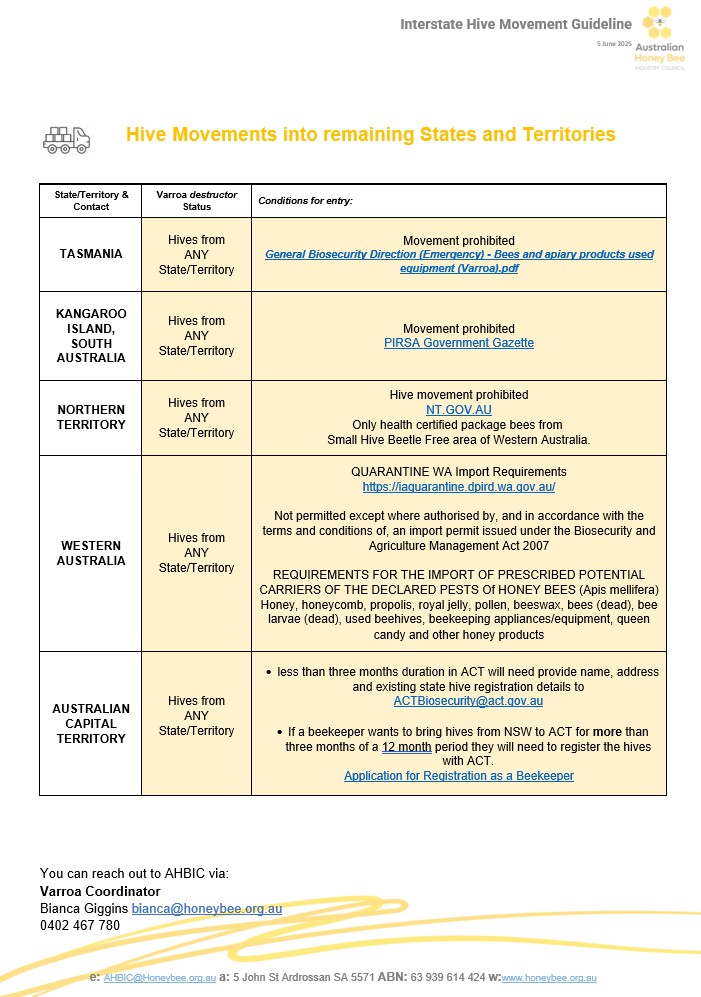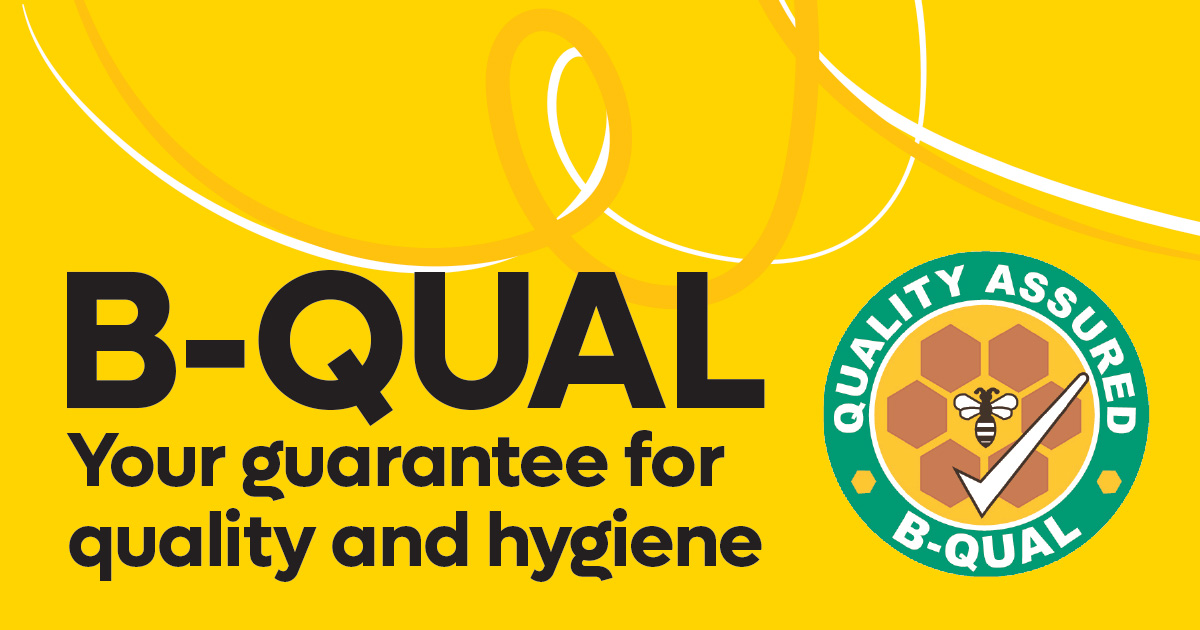Chair Report – September 2025
Chair Quarterly Report September 2025
Spring has sprung! Beekeepers are in the swing of things, shifting to pollination, honey flows, breeding queens and trying to keep their bees in the boxes.
Pollination Services
The importance of pollination is gaining further traction, reports of paid pollination service requirements are growing. As we witness Varroa spread and have an impact on feral and kept colonies, opportunities will arise for further pollination revenue.
Under the new way of beekeeping, it has been suggested that our traditional ‘hunter gatherer’ style of beekeeping will diminish, and beekeepers will be forced to focus more on hive health and less on driving trucks. Rather than pollination being an afterthought of honey production, intense preparation will be required to provide a professional service to the Horticulture sector. The coming years will be tough, being a period of transition, opportunity will arise.
Honey market
Honey production forecasts appear to be average to reasonable in many areas, although many regions or entire states need rain. Reports of stockpiles significantly reducing in beekeepers and packers’ sheds are common. This is due to production reducing and consumption increasing domestically as well as increased export markets. Honey prices must rise for the industries viability.
AHBIC continues to address the concerning imported honey issue. While import quantities remain relatively consistent, we must ensure those imports are on a fair playing field and do not pose a biosecurity threat to Australian bees. Previous studies have indicated that Deformed Wing Virus (DWV) is not present in Australia. This has been confirmed in the recent national virus baseline study conducted under the transition to management program. Varroa is bad enough but DWV with Varroa is a deadly combination we don’t want. Australia must do all that we can to remain DWV free. With encouragement from AHBIC, Dr John Roberts from CSIRO is conducting studies via AgriFutures Honey Bee and Pollination Panel to determine the risk of DWV entering Australia via imported honey. Read more here https://agrifutures.com.au/related-projects/transmission-of-deformed-wing-virus-dwv-via-imported-honey/
The bigger goal is to strengthen the inadequate import protocols for honey entering Australia. AHBIC are consistently lobbying DAFF for a review. As a result, DAFF have committed to work with the National Measurement Institute to establish if more modern testing protocols can be adopted. AHBIC have also made the Federal Minister for Agriculture aware of the situation. AHBIC are hopeful that we can provide more information soon.
Varroa Spread
As expected, Varroa is spreading further throughout NSW, QLD and Victoria. Despite the implications of boarder restrictions, the ‘slow the spread’ plan has worked, and it has given some operators time to prepare. Movement regulations between the said states have become reduced for hives, still requiring a bee health certificate, we hope queens will follow with further deregulation in the coming months.
Unfortunately, Varroa has been detected for the first time in SA. It was detected in one apiary imported from Queensland. The apiary was in isolation with other Queensland bees and has since been removed from SA. We hope that Varroa was not spread into the environment or in low levels at the least. Tasmania have constructed a plan for if varroa is detected, while WA are strongly lobbying their government for support to mitigate the risk.
A thank you to Bianca for filling in as acting CEO while Danny had a much-deserved break. I’m sure Danny will return refreshed and recharged ready for the next challenge.
Good luck with the season ahead.
Jon Lockwood
Chair




